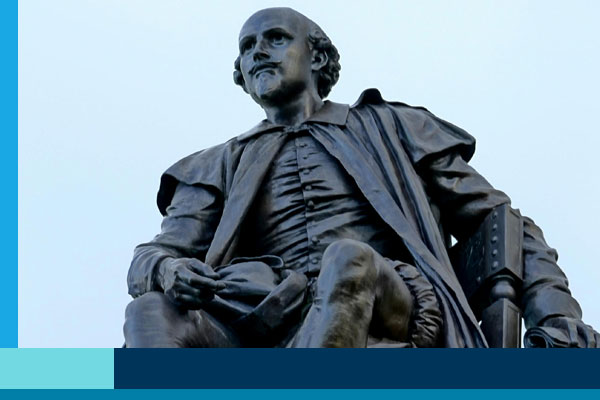Vancouver’s summertime showcase of Shakespearan theatre has been a popular event since it began in 1990. Each season now attracts 100,000 attendees who will watch plays unfold at Sen̓ákw/Vanier Park against a spectacular backdrop of mountains, sky and sea. Why are these 17th century works still appealing to 21st century audiences? Part of the draw comes from the exceptional acting, stunning costumes and magical set designs but the creative directors also keep the plays fresh by setting them in unique places and time periods. But I also think William Shakespeare had a gift for conveying the struggle and chaos of the human experience into well packaged narratives.
As a boy, Shakespeare was among the first generation to grow up hearing the Bible read in English. In Elizabethan grammar schools, it was typical for pupils to translate biblical passages back and forth between English and Latin. The influence of the Bible on Shakespeare’s writing runs deep. He incorporates Bible texts but often as partial quotes, allusions, or parodies of Scripture.
I think to really understand and appreciate his plays familiarity with the Bible is an asset. William lived in a period where Christian theology was more influential in politics and society. Protestant and Catholic divisions over salvation by faith versus works went well beyond hot debate; it divided families and nations. From his scripts it appears Bard weaves in critique of pius religion and offers a commentary on issues of morality and justice. Concepts we continue to wrestle with today. However I would argue the most powerful scenes in Bard’s works present fresh takes on the gospel. To discover these nuanced narratives join us at OAC in person or online July 6, 13 and 20 for our teaching series Bard and the Bible.


